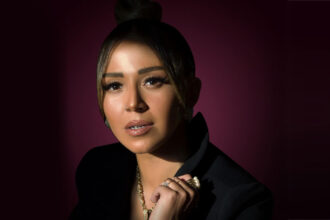In the evolving world of sports, the role of a coach is no longer confined to whistles and tactical drills. In the United Arab Emirates (UAE), a new generation of coaches is redefining the way athletes are groomed—not just as competitors, but as complete individuals. Across the Emirates, from the bustling urban stadiums of Dubai to the grassroots academies in Sharjah and Abu Dhabi, a quiet revolution is underway. Coaches are now mentors, educators, psychologists, and wellness advocates, working to ensure athletes are strong not just on the field, but also in mind, spirit, and community life.
This holistic approach marks a significant shift in the sports culture of the UAE, reflecting the nation’s broader vision of excellence, innovation, and human development. Let’s explore how UAE coaches are reshaping athlete development by focusing on personal growth, emotional resilience, social responsibility, and cultural awareness—building champions for life, not just for matches.
The Rise of the Holistic Coaching Model in the UAE
Historically, coaching focused almost entirely on physical performance. The goals were medals, scores, and victory. While those remain important, UAE’s sports leadership and coaching ecosystem now emphasize the development of the “complete athlete”—one who balances athletic success with personal integrity, academic engagement, mental wellness, and social awareness.
This evolution has been guided by national strategies that prioritize youth development, health, and education. Governmental support for sports academies and training centers across Latest news Dubai has provided tools, freedom, and responsibility to address the multifaceted needs of young athletes. The result is a generation of coaches committed not only to technical excellence but also to nurturing responsible citizens.
Building Mental Resilience and Emotional Intelligence
One of the core areas where UAE coaches are investing time and training is mental health. Competitive sports can be emotionally taxing, especially for young athletes under pressure to perform. Recognizing this, coaches are integrating mental resilience training into regular practice sessions.
From mindfulness techniques and breathing exercises to sessions on emotional regulation, athletes are taught how to manage anxiety, handle failure, and stay motivated. Some coaches also incorporate visualization techniques to help athletes mentally rehearse scenarios, enhancing focus and reducing game-day nervousness.
Rather than viewing mental health as a reactive issue, UAE coaches now address it proactively. They routinely check in on players’ emotional well-being and ensure that the sports environment remains safe, supportive, and psychologically empowering.
Cultivating Leadership and Character
Sports are often described as character-building, but in the UAE, coaches are making this aspect intentional. Character education has become a structured part of coaching. Traits like honesty, humility, perseverance, respect, and teamwork are not just encouraged—they’re actively developed.
Team captains are rotated so every athlete experiences leadership. Coaches hold regular discussions about values and decision-making, and athletes are often asked to reflect on their conduct on and off the field. Coaches mentor them on handling victory with grace and learning from defeat without discouragement.
Additionally, athletes are encouraged to take initiative, set goals, and take responsibility for their development—key leadership traits that prepare them for life beyond sports.
Academic and Athletic Balance
In the UAE, education is considered essential to the overall development of youth, and sports must coexist with academics. Many coaches now work closely with schools and parents to ensure that young athletes maintain strong academic performance.
Coaching schedules are designed to be flexible enough for students to meet study obligations. Coaches advocate for time management skills, discipline, and prioritization—life skills that benefit students beyond the classroom.
In elite academies, athlete education programs are integrated, allowing coaches and teachers to collaborate in designing routines that cater to both sporting and academic excellence. Coaches are no longer seen as rivals to academic achievement, but as facilitators of well-rounded growth.
Nutrition and Lifestyle Guidance
Recognizing that peak performance is not just about training, UAE coaches provide comprehensive lifestyle coaching, especially in terms of nutrition, sleep, and daily routines. Athletes are taught how food fuels performance, the importance of hydration, and how poor sleep affects recovery and mental sharpness.
Workshops and one-on-one counseling sessions with certified sports nutritionists are becoming more common in sports academies and clubs across the UAE. Coaches reinforce these teachings during practice and monitor athletes’ choices outside of training. It’s not uncommon to find coaches accompanying young athletes to the cafeteria to guide healthy eating habits.
This shift helps athletes develop lifelong healthy habits, preparing them to care for their bodies well beyond their sporting careers.
Family and Community Engagement
UAE coaches are increasingly involving families and communities in the development of athletes. Parents are educated about the emotional, psychological, and physical demands of sports, and are encouraged to support—not pressure—their children.
Some coaches organize regular “parent-coach-athlete” meetings, where goals are discussed collaboratively. Others host community events, volunteering initiatives, or social service campaigns where athletes participate as ambassadors. These efforts foster a sense of social responsibility and community connection.
By involving families and building bridges with local institutions, coaches are expanding the support system available to athletes, ensuring their development is rooted in a healthy and encouraging environment.
Cultural Respect and National Identity
Given the diverse population in the UAE, coaches operate in a multicultural environment. Yet, they also play a critical role in instilling respect for Emirati heritage and values. Through sport, coaches promote understanding, tolerance, and appreciation of cultural differences while reinforcing national pride.
Some training programs include cultural education segments, where athletes learn about the UAE’s history, achievements, and vision for the future. Coaches emphasize the honor of representing the UAE in competitions, not just as athletes but as ambassadors of the nation.
This blending of multicultural respect with national identity builds athletes who are globally aware yet deeply connected to their roots.
Talent Identification and Inclusive Development
One of the most progressive aspects of UAE coaching today is the move towards inclusivity and wide-reaching talent identification. Coaches are increasingly encouraged to scout talent from all corners of the Emirates, including underserved areas and marginalized groups.
Girls’ participation in sports, in particular, has seen significant support. Female coaches are rising in prominence, and boys and girls alike are mentored to believe that success in sports is achievable regardless of gender.
Inclusion also extends to youth with special needs. Adaptive sports programs have found champions in many UAE-based coaches who work tirelessly to ensure every individual, regardless of ability, can experience the joy and benefits of sport.
Lifelong Mentorship and Post-Career Planning
For many UAE coaches, their role extends even after an athlete retires. Recognizing that sporting careers can be short, coaches prepare athletes for life after competition. This includes career guidance, mentorship, and even financial literacy sessions in some academies.
Retired athletes are often invited to training camps to share experiences, fostering mentorship among generations. Coaches guide athletes to explore future opportunities in sports management, coaching, physiotherapy, or entrepreneurship, ensuring they stay connected to the world they love while building new careers.
This future-focused vision cements the role of the coach as a lifelong mentor, not just a phase-bound instructor.
Case Studies: Local Heroes in Coaching
Across the Emirates, numerous coaching figures have become beacons of this holistic philosophy. Whether it’s a football coach in Al Ain introducing journaling to help players process emotions, a volleyball coach in Dubai designing nutrition curriculums, or a martial arts trainer in Ras Al Khaimah organizing cultural storytelling sessions after practice—examples abound.
These individuals may not always be in the media spotlight, but their impact is profound. They’re creating environments where every child feels valued, understood, and supported—not just as an athlete, but as a growing human being.
Conclusion: A Vision Rooted in the UAE’s Future
As the UAE charts its course toward becoming a global sports destination, the role of its coaches becomes ever more vital. But unlike traditional models obsessed with short-term wins, the UAE is investing in long-term, values-driven development. Coaches are now nation-builders, shaping minds, values, and futures through sport.
The journey of an athlete in the UAE today is one of balance, learning, growth, and transformation. It’s a journey guided not only by the pursuit of excellence but by the desire to become a better version of oneself. And at the heart of this journey stand the coaches—visionaries who look beyond the field and into the future of every athlete they mentor.









